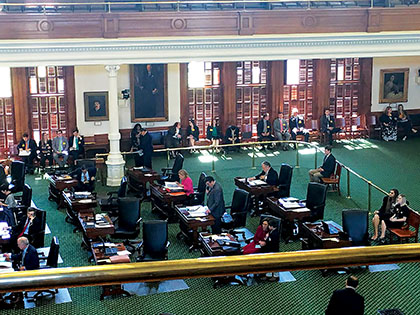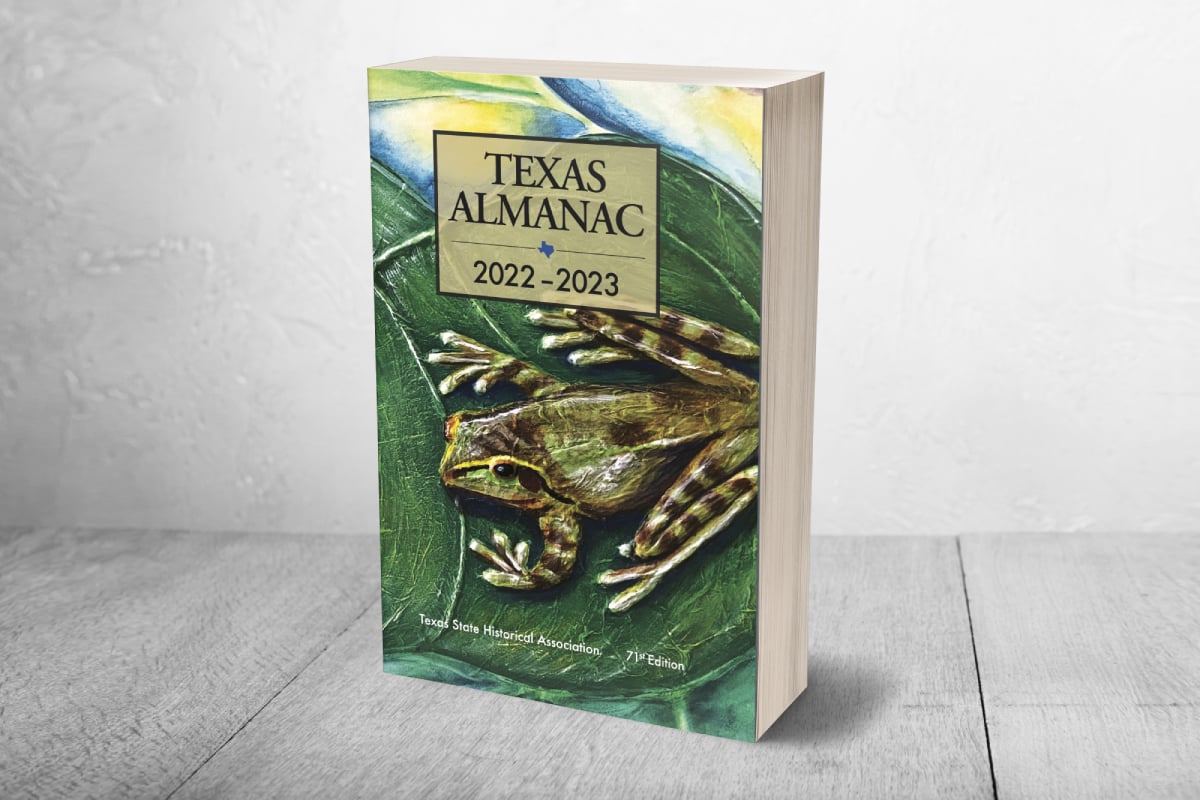By Carolyn Barta
Texas lawmakers welcomed the gavel’s fall on a contentious 85th Legislative session in 2017 that advanced the state’s conservative push despite a rift in the ruling Republican Party. Unresolved differences between the Senate and House resulted in Gov. Greg Abbott calling a special summer session to deal with a laundry list of issues.
Much of the 140-day, January–May regular session was consumed by tensions over a sanctuary cities bill, a bill limiting public bathroom use by transgender Texans, and stricter abortion bills. After efforts dating to 2011, the Legislature passed a law banning sanctuary cities from refusing to enforce federal immigration laws, but failed to pass a “bathroom bill.”
The two chambers agreed in the regular session’s final days on a record $216.8 billion two-year budget, but disagreed on how to spend the money and balance the books. In 2015, legislators passed tax cuts and a large investment in state highways. That left a 2017 funding gap that legislators ultimately plugged by using $1 billion from the $11 billion Rainy Day Fund and an accounting trick to free up nearly $2 billion in dedicated highway funds.
Legislators boosted funding by $509 million over two years for the state’s beleaguered Child Protective Services agency and foster care system and allotted $800 million to increase the number of state troopers on the Texas-Mexico border. They resisted reforming the school finance system or adding funds to pre-kindergarten programs. After reports of abuse and ineptitude at CPS, Gov. Abbott said fixing that agency was his top emergency item and also tagged sanctuary cities as a priority.
At loggerheads throughout were Lt. Gov. Dan Patrick, the conservative firebrand and Tea Party champion presiding over his second regular Senate session, and the more moderate Republican and veteran House Speaker Joe Straus. The lieutenant governor is elected statewide, the speaker by House members.
Republicans were in solid control, with a 20-to-11 advantage in the Senate and a 95-to-55 margin in the House. They were able to outlaw straight-ticket voting — further emasculating the urban-centric Democrats, who haven’t held a statewide office since 1998 and who lost their last power base, the state House majority, in 2002.
But, as in Washington, polarization set in with Republicans not marching lockstep and Democrats nipping at their heels. The Texas Legislature is no stranger to turmoil — from noisy gallery protests to rules fights, filibusters, walkouts, hideouts, and speaker insurrections. But some said the 85th session was marked by an unusually harsh tone, deep divisions, and a lack of civility.
The sanctuary cities bill produced the most rancor. On the session’s final day, a scuffle occurred on the House floor after hundreds of protestors chanted opposition to SB4 in the Capitol rotunda. A member of the Texas Freedom Caucus in the House said he called U.S. Immigration and Customs Enforcement (ICE) to report the protestors were illegal immigrants, enraging some Hispanic legislators and leading to a tussle with each side accusing the other of threats and violence.
The sanctuary cities law banned cities, counties, and universities from prohibiting local law enforcement officers from asking about immigration status. It also created a criminal charge for officers who break the law and provided for the removal of elected officials who violate the ban. Opponents, including several cities and advocacy groups who filed suit, likened the law to Arizona’s “papers, please” legislation.
The Freedom Caucus, a group of some 15 ultra-conservative House members, managed to kill dozens of bills in the regular session to punish House GOP leaders for not pushing agenda items that were successful in the more conservative Senate. A stricter abortion bill (SB 8) did pass, banning a common procedure for second-trimester abortions and requiring health care facilities to bury or cremate fetal remains.
GOP leaders had different agendas. Patrick wanted transgender Texans to use the bathroom aligned with their birth certificate instead of how they self-identified and property tax reform that would require cities and counties to hold tax rate rollback elections. Straus wanted more money for public schools, while Patrick favored vouchers to allow parents to use public dollars for private schools.
Political squabbling resulted in adjournment before the passage of non-controversial legislation to extend the terms of several state boards, including the Texas Medical Board that licenses doctors. Some blamed Patrick for holding the sunset legislation hostage to force a special session that might deal with his other priorities.
Gov. Abbott called the special 30-day session for mid-July so legislators could avoid shutting down the boards and then moved in Patrick’s direction. After being accused of sitting on the sidelines during much of the regular session, Abbott said the Legislature could deal with 19 other items after passing the sunset bill. Democrats charged that many of those issues represented the governor’s capitulation to Patrick and the GOP’s conservative base.
About half of that special session agenda passed, including a bill that prohibited abortion coverage under primary health insurance plans, and another that cracked down on mail-in vote fraud.
The House and Senate, however, could not agree on the figure that would trigger a property tax rollback election. (The House wanted property tax increases to be limited to 6 percent, while the Senate favored the lower 4 percent.)
Lawmakers did put a limit on tree regulations at the local level, to the dismay of many mayors. The bill would allow property owners to plant new trees to offset municipal fees for tree removal on their land. They also shored up funds for retired teachers and added a few dollars for public schools, after allowing state spending for public education to fall by some $1.1 billion in the regular session. And they agreed to create a study on public school finance reform.
The most divisive bill, one that would restrict restrooms and locker rooms available to transgender Texans, failed again, after businesses, including 51 Fortune 500 companies, opposed it. Speaker Straus, fearing an economic impact, kept the bill from reaching the House floor.
Carolyn Barta is a former political writer for The Dallas Morning News and retired journalism professor at Southern Methodist University.
This article was originally published in the Texas Almanac 2018–2019.


